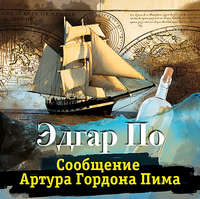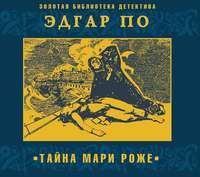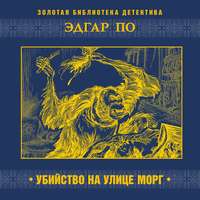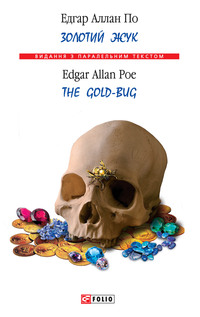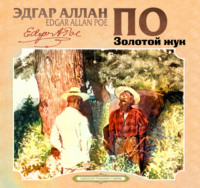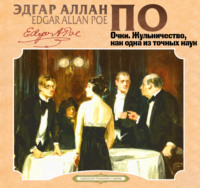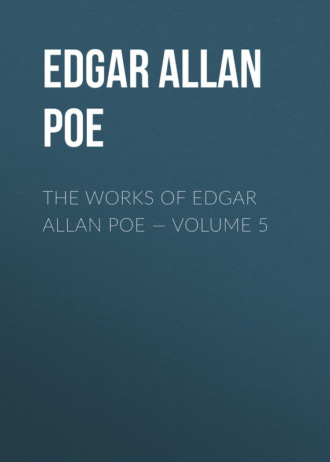 полная версия
полная версияThe Works of Edgar Allan Poe – Volume 5
TO HELEN
I saw thee once – once only – years ago: I must not say how many – but not many. It was a July midnight; and from out A full-orbed moon, that, like thine own soul, soaring, Sought a precipitate pathway up through heaven, There fell a silvery-silken veil of light, With quietude, and sultriness, and slumber, Upon the upturned faces of a thousand Roses that grew in an enchanted garden, Where no wind dared to stir, unless on tiptoe — Fell on the upturn’d faces of these roses That gave out, in return for the love-light, Their odorous souls in an ecstatic death — Fell on the upturn’d faces of these roses That smiled and died in this parterre, enchanted By thee, and by the poetry of thy presence. Clad all in white, upon a violet bank I saw thee half reclining; while the moon Fell on the upturn’d faces of the roses, And on thine own, upturn’d – alas, in sorrow! Was it not Fate, that, on this July midnight- Was it not Fate, (whose name is also Sorrow,) That bade me pause before that garden-gate, To breathe the incense of those slumbering roses? No footstep stirred: the hated world an slept, Save only thee and me. (Oh, Heaven! – oh, God! How my heart beats in coupling those two words!) Save only thee and me. I paused – I looked- And in an instant all things disappeared. (Ah, bear in mind this garden was enchanted!) The pearly lustre of the moon went out: The mossy banks and the meandering paths, The happy flowers and the repining trees, Were seen no more: the very roses’ odors Died in the arms of the adoring airs. All – all expired save thee – save less than thou: Save only the divine light in thine eyes- Save but the soul in thine uplifted eyes. I saw but them – they were the world to me! I saw but them – saw only them for hours, Saw only them until the moon went down. What wild heart-histories seemed to he enwritten Upon those crystalline, celestial spheres! How dark a woe, yet how sublime a hope! How silently serene a sea of pride! How daring an ambition; yet how deep- How fathomless a capacity for love! But now, at length, dear Dian sank from sight, Into a western couch of thunder-cloud; And thou, a ghost, amid the entombing trees Didst glide away. Only thine eyes remained; They would not go – they never yet have gone; Lighting my lonely pathway home that night, They have not left me (as my hopes have) since; They follow me – they lead me through the years. They are my ministers – yet I their slave. Their office is to illumine and enkindle — My duty, to be saved by their bright light, And purified in their electric fire, And sanctified in their elysian fire. They fill my soul with Beauty (which is Hope), And are far up in Heaven – the stars I kneel to In the sad, silent watches of my night; While even in the meridian glare of day I see them still – two sweetly scintillant Venuses, unextinguished by the sun!ANNABEL LEE
It was many and many a year ago, In a kingdom by the sea, That a maiden lived whom you may know By the name of ANNABEL LEE; — And this maiden she lived with no other thought Than to love and be loved by me. I was a child and She was a child, In this kingdom by the sea, But we loved with a love that was more than love — I and my ANNABEL LEE — With a love that the wingéd seraphs of Heaven Coveted her and me. And this was the reason that, long ago, In this kingdom by the sea, A wind blew out of a cloud by night Chilling my ANNABEL LEE; So that her high-born kinsmen came And bore her away from me, To shut her up, in a sepulchre In this kingdom by the sea. The angels, not half so happy in Heaven, Went envying her and me; Yes! that was the reason (as all men know, In this kingdom by the sea) That the wind came out of the cloud, chilling And killing my ANNABEL LEE. But our love it was stronger by far than the love Of those who were older than we — Of many far wiser than we — And neither the angels in Heaven above Nor the demons down under the sea Can ever dissever my soul from the soul Of the beautiful ANNABEL LEE: — For the moon never beams without bringing me dreams Of the beautiful ANNABEL LEE; And the stars never rise but I see the bright eyes Of the beautiful ANNABEL LEE; And so, all the night-tide, I lie down by the side Of my darling, my darling, my life and my bride In her sepulchre there by the sea — In her tomb by the side of the sea.1849.
A VALENTINE
For her this rhyme is penned, whose luminous eyes, Brightly expressive as the twins of Loeda, Shall find her own sweet name, that, nestling lies Upon the page, enwrapped from every reader. Search narrowly the lines! – they hold a treasure Divine – a talisman – an amulet That must be worn at heart. Search well the measure — The words – the syllables! Do not forget The trivialest point, or you may lose your labor! And yet there is in this no Gordian knot Which one might not undo without a sabre, If one could merely comprehend the plot. Enwritten upon the leaf where now are peering Eyes scintillating soul, there lie perdus Three eloquent words oft uttered in the hearing Of poets, by poets – as the name is a poet’s, too. Its letters, although naturally lying Like the knight Pinto – Mendez Ferdinando — Still form a synonym for Truth – Cease trying! You will not read the riddle, though you do the best you can do.1846.
[To discover the names in this and the following poem read the first letter of the first line in connection with the second letter of the second line, the third letter of the third line, the fourth of the fourth and so on to the end.]
AN ENIGMA
“Seldom we find,” says Solomon Don Dunce, “Half an idea in the profoundest sonnet. Through all the flimsy things we see at once As easily as through a Naples bonnet — Trash of all trash! – how can a lady don it? Yet heavier far than your Petrarchan stuff- Owl-downy nonsense that the faintest puff Twirls into trunk-paper the while you con it.” And, veritably, Sol is right enough. The general tuckermanities are arrant Bubbles – ephemeral and so transparent — But this is, now, – you may depend upon it — Stable, opaque, immortal – all by dint Of the dear names that lie concealed within ‘t.1847. TO MY MOTHER
Because I feel that, in the Heavens above, The angels, whispering to one another, Can find, among their burning terms of love, None so devotional as that of “Mother,” Therefore by that dear name I long have called you — You who are more than mother unto me, And fill my heart of hearts, where Death installed you In setting my Virginia’s spirit free. My mother – my own mother, who died early, Was but the mother of myself; but you Are mother to the one I loved so dearly, And thus are dearer than the mother I knew By that infinity with which my wife Was dearer to my soul than its soul-life.1849.
[The above was addressed to the poet’s mother-in-law, Mrs. Clemm – Ed.]
FOR ANNIE
Thank Heaven! the crisis — The danger is past, And the lingering illness Is over at last — And the fever called “Living” Is conquered at last. Sadly, I know I am shorn of my strength, And no muscle I move As I lie at full length — But no matter! – I feel I am better at length. And I rest so composedly, Now, in my bed, That any beholder Might fancy me dead — Might start at beholding me, Thinking me dead. The moaning and groaning, The sighing and sobbing, Are quieted now, With that horrible throbbing At heart: – ah, that horrible, Horrible throbbing! The sickness – the nausea — The pitiless pain — Have ceased, with the fever That maddened my brain — With the fever called “Living” That burned in my brain. And oh! of all tortures That torture the worst Has abated – the terrible Torture of thirst For the naphthaline river Of Passion accurst: — I have drank of a water That quenches all thirst: — Of a water that flows, With a lullaby sound, From a spring but a very few Feet under ground — From a cavern not very far Down under ground. And ah! let it never Be foolishly said That my room it is gloomy And narrow my bed; For man never slept In a different bed — And, to sleep, you must slumber In just such a bed. My tantalized spirit Here blandly reposes, Forgetting, or never Regretting its roses — Its old agitations Of myrtles and roses: For now, while so quietly Lying, it fancies A holier odor About it, of pansies — A rosemary odor, Commingled with pansies — With rue and the beautiful Puritan pansies. And so it lies happily, Bathing in many A dream of the truth And the beauty of Annie — Drowned in a bath Of the tresses of Annie. She tenderly kissed me, She fondly caressed, And then I fell gently To sleep on her breast — Deeply to sleep From the heaven of her breast. When the light was extinguished, She covered me warm, And she prayed to the angels To keep me from harm — To the queen of the angels To shield me from harm. And I lie so composedly, Now in my bed, (Knowing her love) That you fancy me dead — And I rest so contentedly, Now in my bed, (With her love at my breast) That you fancy me dead — That you shudder to look at me, Thinking me dead: — But my heart it is brighter Than all of the many Stars in the sky, For it sparkles with Annie — It glows with the light Of the love of my Annie — With the thought of the light Of the eyes of my Annie.1849.
TO F —
BELOVED! amid the earnest woes That crowd around my earthly path — (Drear path, alas! where grows Not even one lonely rose) — My soul at least a solace hath In dreams of thee, and therein knows An Eden of bland repose. And thus thy memory is to me Like some enchanted far-off isle In some tumultuos sea — Some ocean throbbing far and free With storms – but where meanwhile Serenest skies continually Just o’re that one bright island smile.1845.
TO FRANCES S. OSGOOD
THOU wouldst be loved? – then let thy heart From its present pathway part not! Being everything which now thou art, Be nothing which thou art not. So with the world thy gentle ways, Thy grace, thy more than beauty, Shall be an endless theme of praise, And love – a simple duty.1845.
ELDORADO
Gaily bedight, A gallant knight, In sunshine and in shadow, Had journeyed long, Singing a song, In search of Eldorado. But he grew old — This knight so bold — And o’er his heart a shadow Fell, as he found No spot of ground That looked like Eldorado. And, as his strength Failed him at length, He met a pilgrim shadow — ‘Shadow,’ said he, ‘Where can it be — This land of Eldorado?’ ‘Over the Mountains Of the Moon, Down the Valley of the Shadow, Ride, boldly ride,’ The shade replied, — ‘If you seek for Eldorado!’1849.
EULALIE I DWELT alone In a world of moan, And my soul was a stagnant tide, Till the fair and gentle Eulalie became my blushing bride — Till the yellow-haired young Eulalie became my smiling bride. Ah, less – less bright The stars of the night Than the eyes of the radiant girl! And never a flake That the vapour can make With the moon-tints of purple and pearl, Can vie with the modest Eulalie’s most unregarded curl — Can compare with the bright-eyed Eulalie’s most humble and careless curl. Now Doubt – now Pain Come never again, For her soul gives me sigh for sigh, And all day long Shines, bright and strong, Astarté within the sky, While ever to her dear Eulalie upturns her matron eye — While ever to her young Eulalie upturns her violet eye.1845.
A DREAM WITHIN A DREAM Take this kiss upon the brow! And, in parting from you now, Thus much let me avow — You are not wrong, who deem That my days have been a dream; Yet if hope has flown away In a night, or in a day, In a vision, or in none, Is it therefore the less gone? All that we see or seem Is but a dream within a dream. I stand amid the roar Of a surf-tormented shore, And I hold within my hand Grains of the golden sand — How few! yet how they creep Through my fingers to the deep, While I weep – while I weep! O God! can I not grasp Them with a tighter clasp? O God! can I not save One from the pitiless wave? Is all that we see or seem But a dream within a dream?.1849
TO MARIE LOUISE (SHEW)
Of all who hail thy presence as the morning — Of all to whom thine absence is the night — The blotting utterly from out high heaven The sacred sun – of all who, weeping, bless thee Hourly for hope – for life – ah! above all, For the resurrection of deep-buried faith In Truth – in Virtue – in Humanity — Of all who, on Despair’s unhallowed bed Lying down to die, have suddenly arisen At thy soft-murmured words, “Let there be light!” At the soft-murmured words that were fulfilled In the seraphic glancing of thine eyes — Of all who owe thee most – whose gratitude Nearest resembles worship – oh, remember The truest – the most fervently devoted, And think that these weak lines are written by him — By him who, as he pens them, thrills to think His spirit is communing with an angel’s.1847.
TO MARIE LOUISE (SHEW)
NOT long ago, the writer of these lines, In the mad pride of intellectuality, Maintained “the power of words” – denied that ever A thought arose within the human brain Beyond the utterance of the human tongue: And now, as if in mockery of that boast, Two words-two foreign soft dissyllables — Italian tones, made only to be murmured By angels dreaming in the moonlit “dew That hangs like chains of pearl on Hermon hill,” — Have stirred from out the abysses of his heart, Unthought-like thoughts that are the souls of thought, Richer, far wider, far diviner visions Than even the seraph harper, Israfel, (Who has “the sweetest voice of all God’s creatures”) Could hope to utter. And I! my spells are broken. The pen falls powerless from my shivering hand. With thy dear name as text, though bidden by thee, I can not write-I can not speak or think — Alas, I can not feel; for ‘tis not feeling, This standing motionless upon the golden Threshold of the wide-open gate of dreams, Gazing, entranced, adown the gorgeous vista, And thrilling as I see, upon the right, Upon the left, and all the way along, Amid empurpled vapors, far away To where the prospect terminates-thee only!1848.
THE CITY IN THE SEA
Lo! Death has reared himself a throne In a strange city lying alone Far down within the dim West, Wherethe good and the bad and the worst and the best Have gone to their eternal rest. There shrines and palaces and towers (Time-eaten towers that tremble not!) Resemble nothing that is ours. Around, by lifting winds forgot, Resignedly beneath the sky The melancholy waters lie. No rays from the holy heaven come down On the long night-time of that town; But light from out the lurid sea Streams up the turrets silently — Gleams up the pinnacles far and free — Up domes – up spires – up kingly halls — Up fanes – up Babylon-like walls — Up shadowy long-forgotten bowers Of scultured ivy and stone flowers — Up many and many a marvellous shrine Whose wreathed friezes intertwine The viol, the violet, and the vine. Resignedly beneath the sky The melancholy waters lie. So blend the turrets and shadows there That all seem pendulous in air, While from a proud tower in the town Death looks gigantically down. There open fanes and gaping graves Yawn level with the luminous waves; But not the riches there that lie In each idol’s diamond eye — Not the gaily-jewelled dead Tempt the waters from their bed; For no ripples curl, alas! Along that wilderness of glass — No swellings tell that winds may be Upon some far-off happier sea — No heavings hint that winds have been On seas less hideously serene. But lo, a stir is in the air! The wave – there is a movement there! As if the towers had thrown aside, In slightly sinking, the dull tide — As if their tops had feebly given A void within the filmy Heaven. The waves have now a redder glow — The hours are breathing faint and low — And when, amid no earthly moans, Down, down that town shall settle hence, Hell, rising from a thousand thrones, Shall do it reverence.1845.
THE SLEEPER
At midnight in the month of June, I stand beneath the mystic moon. An opiate vapour, dewy, dim, Exhales from out her golden rim, And, softly dripping, drop by drop, Upon the quiet mountain top. Steals drowsily and musically Into the univeral valley. The rosemary nods upon the grave; The lily lolls upon the wave; Wrapping the fog about its breast, The ruin moulders into rest; Looking like Lethe, see! the lake A conscious slumber seems to take, And would not, for the world, awake. All Beauty sleeps! – and lo! where lies (Her easement open to the skies) Irene, with her Destinies! Oh, lady bright! can it be right — This window open to the night? The wanton airs, from the tree-top, Laughingly through the lattice drop — The bodiless airs, a wizard rout, Flit through thy chamber in and out, And wave the curtain canopy So fitfully – so fearfully — Above the closed and fringed lid ‘Neath which thy slumb’ring sould lies hid, That o’er the floor and down the wall, Like ghosts the shadows rise and fall! Oh, lady dear, hast thous no fear? Why and what art thou dreaming here? Sure thou art come p’er far-off seas, A wonder to these garden trees! Strange is thy pallor! strange thy dress! Strange, above all, thy length of tress, And this all solemn silentness! The lady sleeps! Oh, may her sleep, Which is enduring, so be deep! Heaven have her in its sacred keep! This chamber changed for one more holy, This bed for one more melancholy, I pray to God that she may lie Forever with unopened eye, While the dim sheeted ghosts go by! My love, she sleeps! Oh, may her sleep, As it is lasting, so be deep! Soft may the worms about her creep! Far in the forest, dim and old, For her may some tall vault unfold — Some vault that oft hath flung its black And winged pannels fluttering back, Triumphant, o’er the crested palls, Of her grand family funerals — Some sepulchre, remote, alone, Against whose portal she hath thrown, In childhood, many an idle stone — Some tomb fromout whose sounding door She ne’er shall force an echo more, Thrilling to think, poor child of sin! It was the dead who groaned within.1845.
BRIDAL BALLAD THE ring is on my hand, And the wreath is on my brow; Satins and jewels grand Are all at my command, And I am happy now. And my lord he loves me well; But, when first he breathed his vow, I felt my bosom swell — For the words rang as a knell, And the voice seemed his who fell In the battle down the dell, And who is happy now. But he spoke to re-asure me, And he kissed my pallid brow, While a reverie came o’re me, And to the church-yard bore me, And I sighed to him before me, Thinking him dead D’Elormie, “Oh, I am happy now!” And thus the words were spoken, And this the plighted vow, And, though my faith be broken, And, though my heart be broken, Behold the golden token That proves me happy now! Would God I could awaken! For I dream I know not how, And my soul is sorely shaken Lest an evil step be taken, — Lest the dead who is forsaken May not be happy now.1845.
NOTES
1. “The Raven” was first published on the 29th January, 1845, in the New York “Evening Mirror" – a paper its author was then assistant editor of. It was prefaced by the following words, understood to have been written by N. P. Willis: “We are permitted to copy (in advance of publication) from the second number of the “American Review,” the following remarkable poem by Edgar Poe. In our opinion, it is the most effective single example of ‘fugitive poetry’ ever published in this country, and unsurpassed in English poetry for subtle conception, masterly ingenuity of versification, and consistent sustaining of imaginative lift and ‘pokerishness.’ It is one of those ‘dainties bred in a book’ which we feed on. It will stick to the memory of everybody who reads it.” In the February number of the “American Review” the poem was published as by “Quarles,” and it was introduced by the following note, evidently suggested if not written by Poe himself.
[“The following lines from a correspondent-besides the deep, quaint strain of the sentiment, and the curious introduction of some ludicrous touches amidst the serious and impressive, as was doubtless intended by the author-appears to us one of the most felicitous specimens of unique rhyming which has for some time met our eye. The resources of English rhythm for varieties of melody, measure, and sound, producing corresponding diversities of effect, having been thoroughly studied, much more perceived, by very few poets in the language. While the classic tongues, especially the Greek, possess, by power of accent, several advantages for versification over our own, chiefly through greater abundance of spondaic: feet, we have other and very great advantages of sound by the modern usage of rhyme. Alliteration is nearly the only effect of that kind which the ancients had in common with us. It will be seen that much of the melody of ‘The Raven’ arises from alliteration, and the studious use of similar sounds in unusual places. In regard to its measure, it may be noted that if all the verses were like the second, they might properly be placed merely in short lines, producing a not uncommon form; but the presence in all the others of one line-mostly the second in the verse” (stanza?) – “which flows continuously, with only an aspirate pause in the middle, like that before the short line in the Sapphic Adonic, while the fifth has at the middle pause no similarity of sound with any part besides, gives the versification an entirely different effect. We could wish the capacities of our noble language in prosody were better understood.” – ED. “Am. Rev.”]




